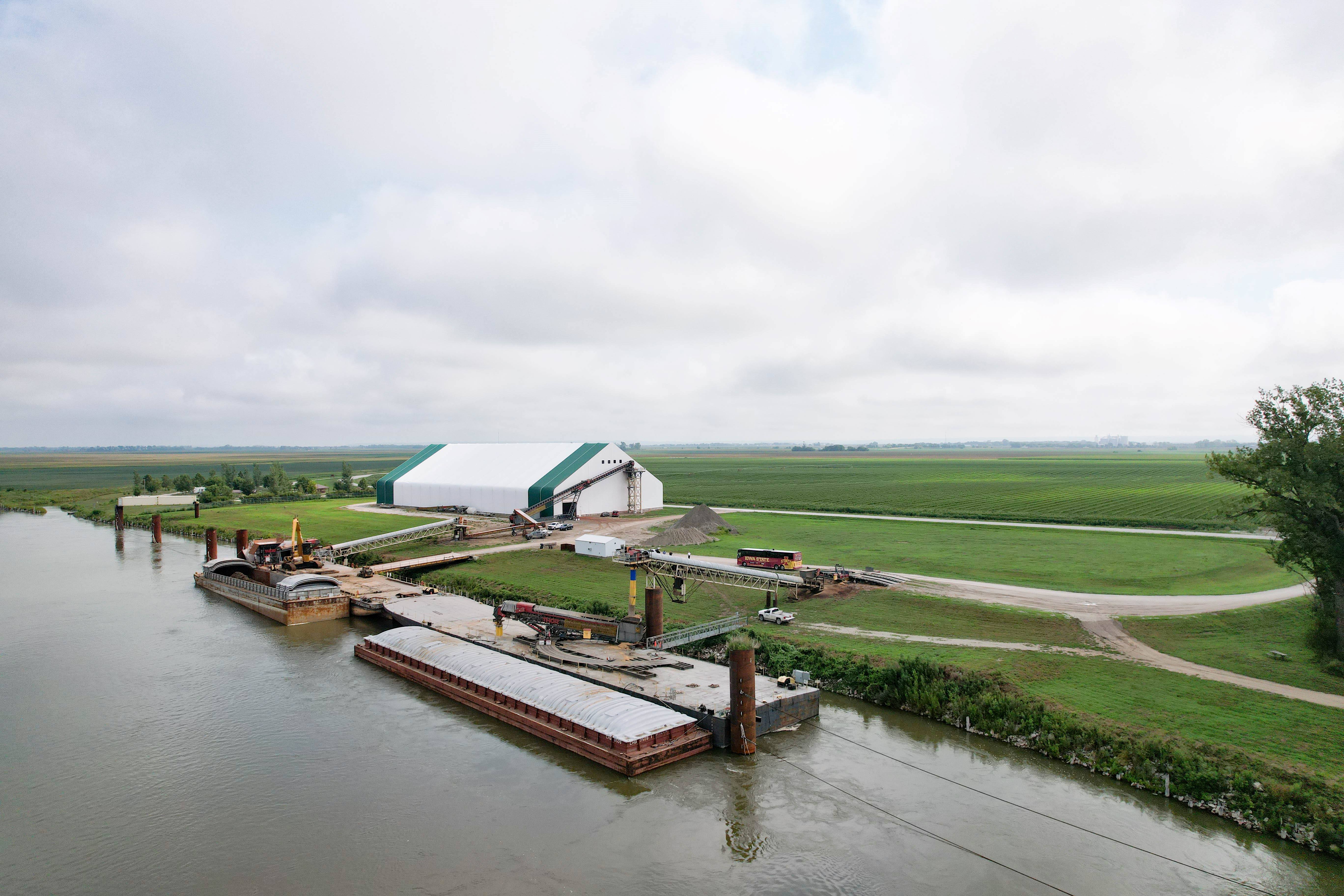
The Port of Blencoe, situated on the Missouri River, offers an opportunity for soybean farmers to reach global customers. More than half of the domestic soybean crop is exported to global markets annually. (Photo: Iowa Soybean Association / Joclyn Kuboushek)
Soybean Farmers Urge Decisive Action to Mitigate Tariff Impacts
April 8, 2025 | Brock Johnston
Ankeny, Iowa – While not unexpected, growing concerns following the administration’s tariff announcement have placed market certainty, production cost increases, and potential retaliatory action top of mind for Iowa farmers.
Iowa is the nation’s second largest producer of soybeans, the most valuable U.S. agricultural export. As a result, soybean farmers find themselves at the tip of the spear in a global trade war.
As soybean farmers head to the fields to plant this year’s crop, the Iowa Soybean Association (ISA) urges swift and decisive action to mitigate the economic impact to the soybean industry.
“Tariffs levied on countries that depend on U.S. soy and soybean farmers hit Iowa farmers especially hard,” says Brent Swart, ISA president and soybean farmer from Spencer.
The announcement of 10% baseline tariffs on all countries and additional, individualized tariff rates on approximately 60 countries impacts all of U.S. soy’s Top 10 export markets. This includes #1 export market China. The new duties on China will stack atop the 20% tariffs already imposed, bringing the tariff rate on Chinese goods entering the U.S. to 54%.
As the tariffs take effect, importers favor competitors including Brazil and Argentina. A prolonged U.S. trade war risks permanently alienating Iowa and U.S. soybean farmers from key markets.
The Clay County farmer says the spot market for soybeans is $1.50-$2-per-bushel below the cost of production.
As the administration uses tariffs to right size long-standing U.S. trade imbalances, ISA urges swift and strategic action to maintain our nation’s security, reasonable food prices for consumers and the economic prosperity of Iowa and our nation’s rural communities.
Specifically, ISA asks the administration to:
- Update the U.S.-Mexico-Canada Agreement (USMCA), which has been a success for soybean farmers and is scheduled for review next year;
- Quickly negotiate a “Phase Two” trade agreement with China, with enforceable purchase commitments of U.S. agricultural goods; and
- Utilize the reciprocal tariffs to create new market access to drive demand and minimize the potential for retaliation.
As we continue to advocate for these policy initiatives, ISA will:
- Encourage the administration to use every tool available to backfill the steep financial losses experienced by farmers;
- Collaborate with market analysts to bring timely commodity marketing expertise to farmers;
- Work closely with farm service and product providers to optimize farmer revenue opportunities, including better grain storage and management;
- Utilize our repository of on-farm agronomic and production research to maximize efficiencies to lower production costs;
- Work to reduce regulations that significantly increase production costs; and
- Seek to grow new market opportunities domestically and abroad.
“We stand ready to work with the administration to ensure our soybeans have viable market opportunities, and appreciate the administration’s work with the agriculture community to quickly restore and strengthen market access so that tariffs can be removed on key trade partners,” says Swart.
###
The Iowa Soybean Association (www.iasoybeans.com) is “Driven To Deliver” increased soybean demand through market development and new uses, farmer-focused research and results, timely information and know-how and policy initiatives enabling farmers and the industry to flourish. Founded in 1964 by farmers to serve farmers, ISA is governed by a board of 22 farmers to advocate on behalf of the state’s 37,000 soybean producers, including more than 15,000 ISA farmer members and industry stakeholders.
Back